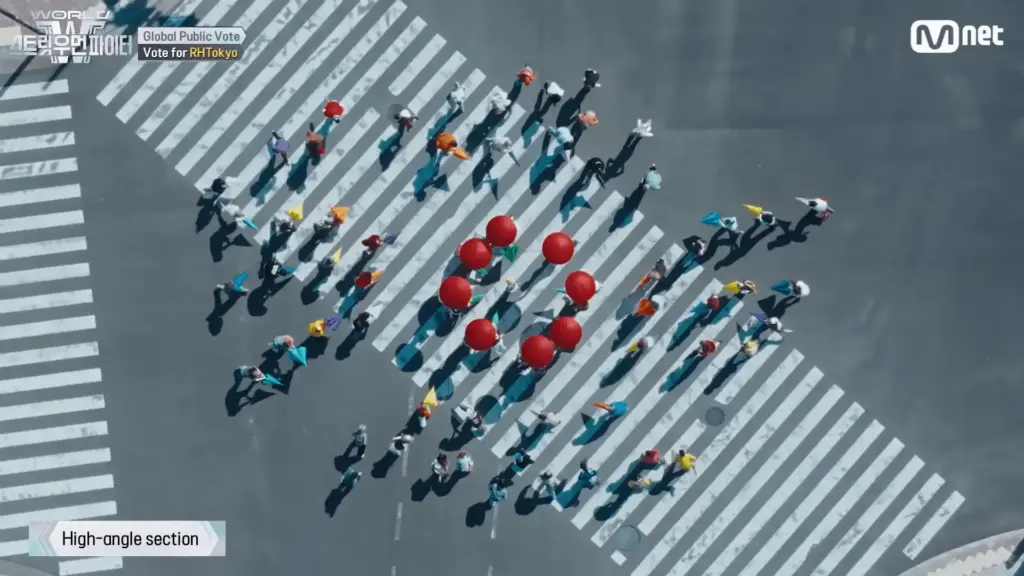RH Tokyo, one of the featured crews on Mnet’s World Street Woman Fighter (WSWF), is facing intense backlash from Korean viewers following their recent Mega Crew Mission performance. The controversy centers on claims that the stage included imagery reminiscent of the Rising Sun Flag, a symbol heavily associated with Japanese imperialism and historical trauma in Korea.
The Mega Crew Mission, introduced by BLACKPINK‘s Jennie on the June 17 broadcast, encouraged dance teams to showcase performances inspired by various world cultures. RH Tokyo chose to highlight Tokyo’s Shibuya district with a futuristic narrative and themes celebrating Japanese identity. The performance included bold lyrics such as:
- “Glorious Japan,”
- “Pride as a Japanese,”
- “Born in Tokyo, die in Tokyo.”
After the performance video was uploaded on Mnet’s YouTube channel The CHOOM on June 18, Korean netizens quickly reacted. A specific moment where dancers executed a synchronized dogeza (a deep, kneeling bow) was seen as overly nationalistic. Additionally, an umbrella formation that mimicked the iconic Shibuya Scramble Crossing was accused of resembling the Rising Sun Flag’s radiating motif.



Outraged comments flooded Korean forums:
- “How did a performance glorifying Japanese nationalism air on a Korean show?”
- “This evokes memories of colonialism and is extremely insensitive to Korean viewers.”
- “It may seem artistic to some, but to Koreans, it’s a painful symbol.”
Even bellow the article, netizens reacted strongly to the controversy:
- “I didn’t like the music either.”
- “So I hit ‘dislike.’”
- “While watching the video, the music was so unbearable I had to stop halfway! It was childish and over-the-top! And I actually like Japan, lol.”
The Rising Sun Flag, once used by Japan’s imperial military during World War II, remains a deeply offensive symbol for many in Korea, where memories of occupation and wartime atrocities are still raw. While some may view its use as a cultural or aesthetic choice, Korean audiences have repeatedly condemned its presence in media.


RH Tokyo has yet to respond to the criticism, but viewers are calling for Mnet and WSWF producers to explain how the performance passed content checks. With World Street Woman Fighter considered a symbol of global dance culture, this incident has raised questions about cultural sensitivity and the responsibility of broadcasters to prevent provocative symbolism.

